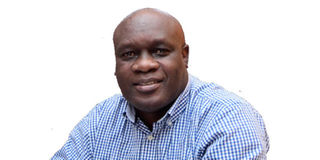Ugandans listen to radio, but what are they hearing?

What you need to know:
Radio journalism requires more creativity, more field work. ..
At least 78 per cent of Ugandans listen to radio every day across, according to Uganda Media Landscape Report (February 2019) done by BBC Media Action. Broken down further, 90.5 per cent of Ugandan males listen to radio every day compared to women at 68.7 per cent. With regard to rural vs urban listenership, at least 80 per cent of those living in urban areas listen to radio compared to 76 per cent in rural areas.
Radio’s reach in Uganda is noticeable everywhere you go. It is in the commuter taxis, in the homes, in private cars, in wood and metal fabrication workshops, in the gardens, in barber shops and beauty parlours, in motor garages, in stone quarries; it is everywhere!
Just what are Ugandans listening to? I have been a locked-in listener of Radio One since it came on air in 1997 partly because I mostly listen to radio in the car, and my car radio stopped at FM90, its broadcasting frequency. I had no reason over the years to change radio sets as all I needed was Radio One and a few Country and Oldies music CDs.
That changed two months or so ago when a tasteless – and in my view unethical – advert of A-Plus Funeral Services was continuously aired on Radio One in the mornings and evenings. I yanked out the original car radio whose frequency range stopped at FM90 and replaced it with one whose frequency range goes up to 108FM. My “liberation” from Radio One (I return to it every Sunday, though) opened a “new” world of radio to me. I could once again listen to a variety of English radio stations – KFM, Capital FM, BBC, Bob FM (bless their music) and a few others in between.
The liberation has not come with all happiness! Save for BBC, whose content is so enriching anytime one tunes in and Bob FM whose Country ballads touch my souls, the rest of the radios in the morning and the greater part of the day are talking about sex and relationships in between the continuous music they play with three-minute breaks every top of the hour to read “news” off the newspapers. Their online pages are also an agony page!
The presenters (erroneously referred to as radio journalists) every hour or so throw up a hypothetical sex or relationship dilemma and thanks to cheap mobile phone voice bundles, many Ugandans listening are on hand to call into the studios to give advice and pose more hypothetical questions. When the morning is done, the afternoons come with more of the same.
In the early evenings, one will listen to talk-shows featuring recycled NGO executives hoping from one radio station to the other talking about the same things every other day - corruption, governance, etc – even when the same diseases afflict their organisations. Of course, there are the once or twice a week political talk shows that are more or less the same this week, the week before and the week after.
The question in my mind is just how much journalism is on the radios that 78 per cent Ugandans listen to? How much journalism should be there vis-a-vis entertainment and voyeurism that permeates the airwaves today? Are Uganda radio listeners interested in anything other than sex and relationships?
Well, radio journalism requires more creativity, more field work and certainly needs some resources and trained personnel. This is not a route commercial entertainment-driven FM radios will take soon, or ever. Only a public broadcaster will if they rise above politics. For now, it seems, Ugandans will continue to listen to sex, relationships and comedy interspersed with bits of shallow news and embellished by music.
READERS HAVE YOUR SAY
Talibita Moses: Is there a policy not to cover tobacco control work and subsequent pulling off from your website tobacco control stories? I keep getting message “we are sorry, we didn’t find the page you were looking for” whenever I click on previous published tobacco stories.
Public Editor: There is no such policy. I put this to ME – Digital, Carol Beyanga, who explained: “This is happening for many stories published before 2019 because website was upgraded to a better platform. All stories are being migrated and eventually readers will access all archived stories. We apologise for the inconvenience.




